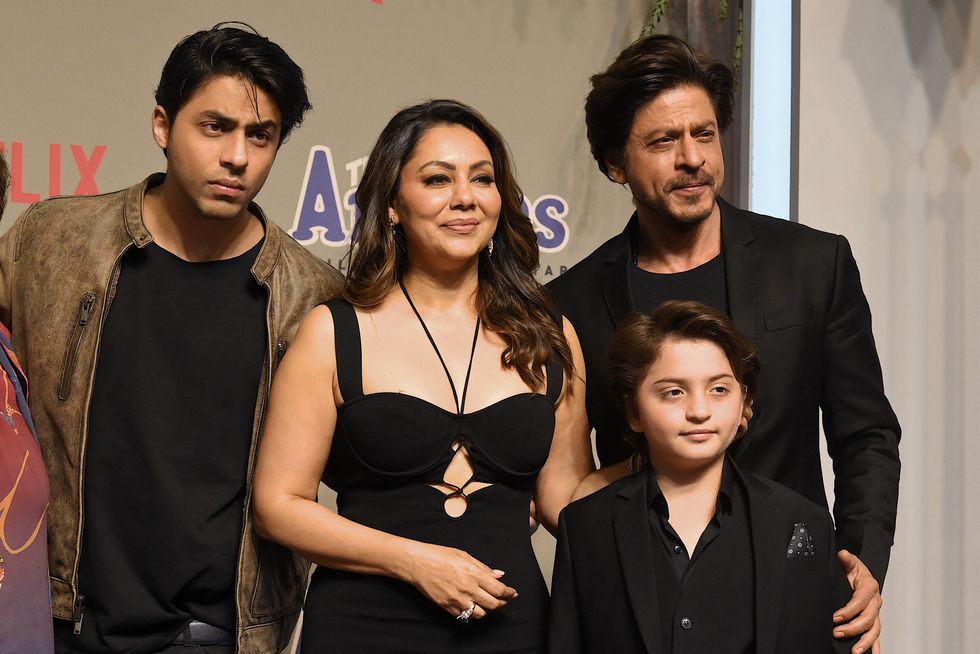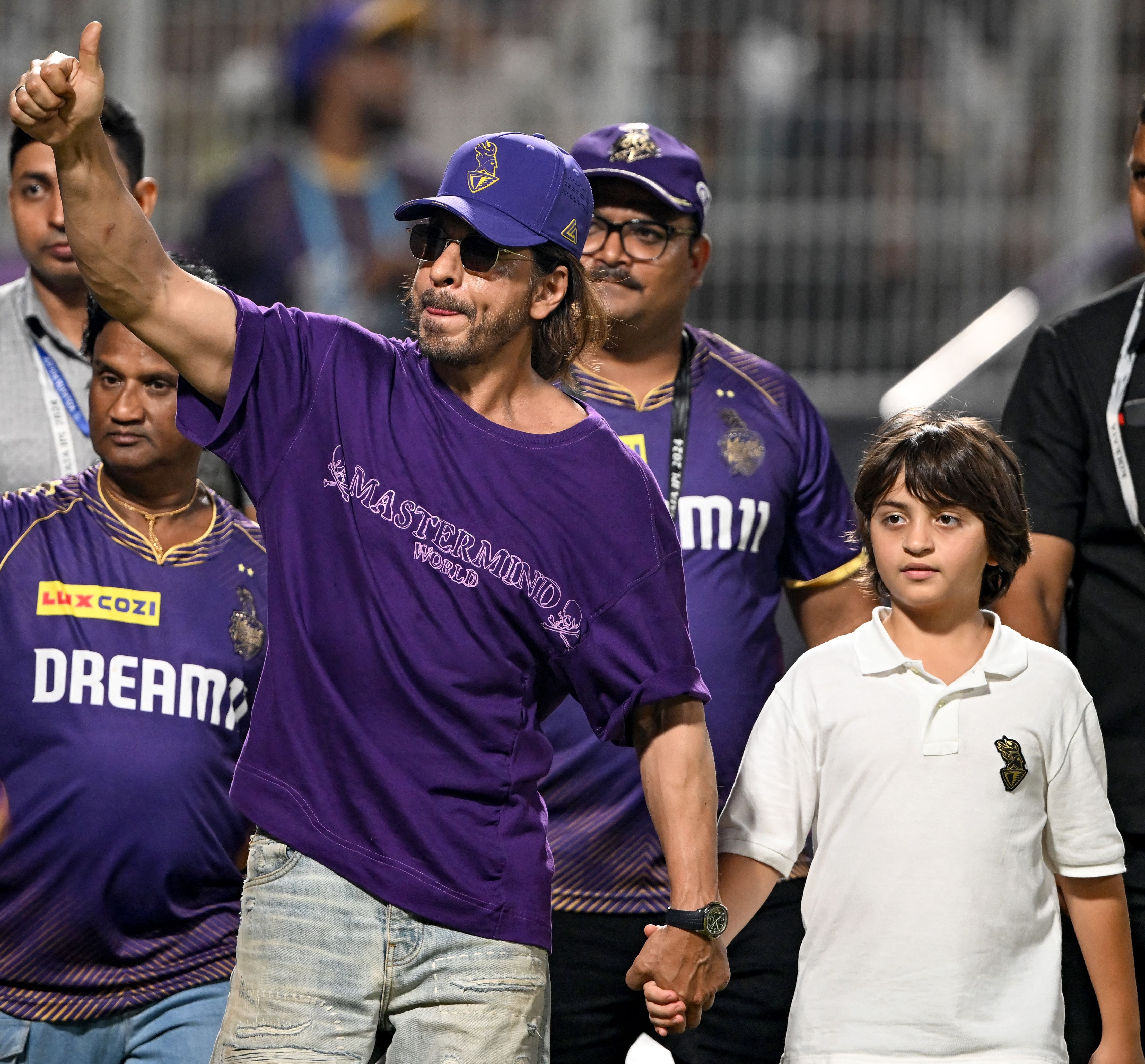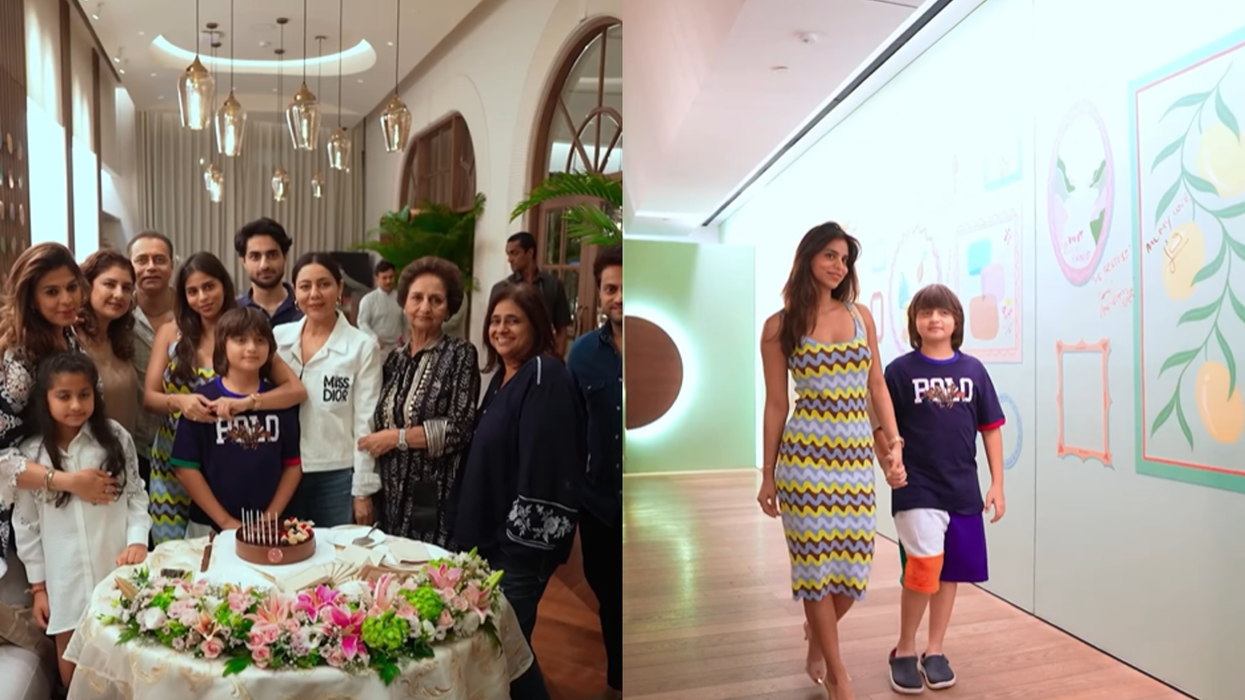AbRam Khan turned 12 on 27 May, and the occasion was celebrated in a quiet, close-knit gathering at Mumbai’s NMACC Arts Café. Hosted by his mother Gauri Khan and sister Suhana, the celebration was simple, personal, and full of warmth. Though the Khan family is often seen together during major public moments, this time, Shah Rukh Khan and eldest son Aryan were noticeably absent, a detail that didn’t go unnoticed by fans online.
The celebration video, shared by the NMACC’s official Instagram account, opened with AbRam walking in alongside Suhana, both looking casual and cheerful. Suhana chose a breezy printed dress, while AbRam wore a relaxed blue tee. Gauri, who designed the café, appeared in a chic white blazer and trousers.
Inside, the café buzzed with a low-key birthday mood: pizzas, sweet bites, and a rich chocolate cake took centre stage. Also spotted were family friends like Pooja Dadlani and Kajal Anand, along with Gauri’s mother and other close relatives.
The caption from NMACC read, “Such a joy to welcome back Mrs Gauri Khan – designer of the NMACC Arts Café – along with Suhana Khan and family for AbRam’s birthday celebrations. Another evening full of sweet moments and big smiles.”
Social media reactions quickly picked up on the absence of Shah Rukh and Aryan. “Where’s King Khan?” asked one user. Another chimed in, “Why is the elder brother and dad missing?”

While the reasons for their absence remain unclear, the bond between AbRam, Gauri, and Suhana stood out in the video full of smiles, quiet hugs, and a genuine sense of comfort. Born via surrogacy in 2013, AbRam is the youngest of the Khan siblings and has been a familiar face next to SRK during Eid and birthday waves to fans from Mannat.
Interestingly, the 12-year-old has already dipped his toes into voice acting. He recently dubbed for young Mufasa in the Hindi version of Mufasa: The Lion King, while Aryan voiced Simba. The film, a prequel to the beloved The Lion King, is directed by Barry Jenkins.

Despite SRK and Aryan being missing in action, the gathering was a regular modern family celebration, laid-back, loving, and shared with those who matter most.





